Anwar Ibrahim cancels his trip to Australia. (Photo: AFP)
My comments on Anwar Ibrahim cancelling an upcoming trip to Australia amidst a swirling sex video scandal have been included in an article by Amanda Hodge in The Weekend Australian.

Anwar Ibrahim cancels his trip to Australia. (Photo: AFP)
My comments on Anwar Ibrahim cancelling an upcoming trip to Australia amidst a swirling sex video scandal have been included in an article by Amanda Hodge in The Weekend Australian.

Haziq Aziz claims to be one of two men in a leaked video. The other man appears to be a senior figure in the People’s Justice Party. (Photo: Facebook)
I made some comments in an ABC article by Max Walden on the recent Malaysian sex video scandal.
“Malaysia has shown a rich tradition of such allegations being weaponised in politics, usually supported by visual props like images and videos.
They are usually aimed at widening divisions and causing splits, allowing competitors to gain the upper hand in political contests.
They tend to take on a moral tone, with the aim of discrediting the person being targeted.”
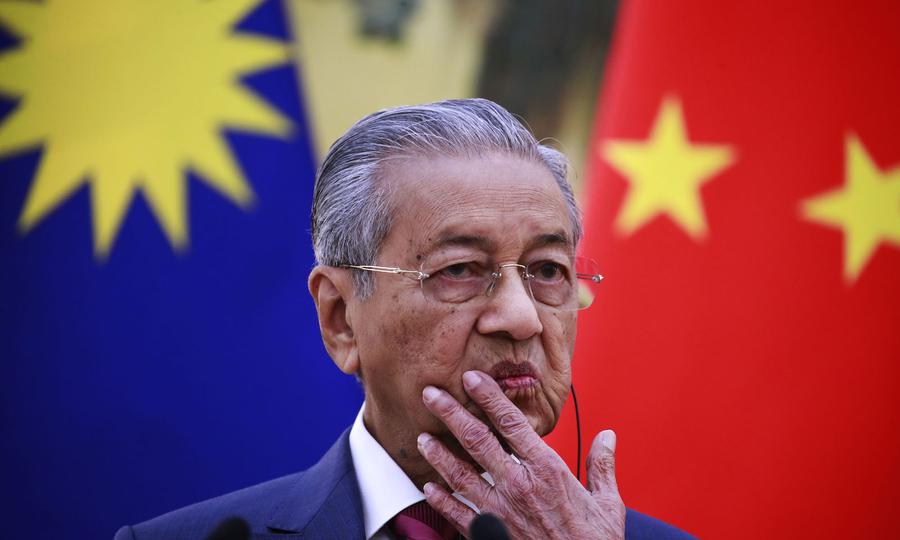
PM Mahathir Mohamad speaks at a press conference at the Great Hall of the People in Beijing, August 20, 2018 (Photo: AFP/How Hwee Young).
I was happy to add my to comments this excellent article by Nile Bowie in the Asia Times on the recommenced East Coast Rail Link (ECRL), a multibillion-dollar China-backed infrastructure project. This is an important political victory for Harapan, which has been working hard to convince Malaysians former PM Najib Razak’s Chinese projects were corrupt and overpriced. It also represents a step forward for the government in managing its relations with China.
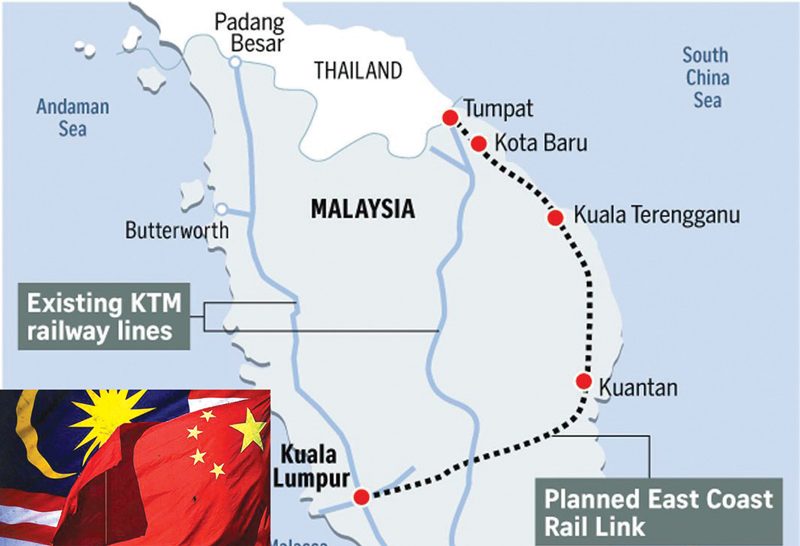
The proposed route for the Chinese Belt and Road-funded East Coast Rail Link
I recently published an article on Malaysia’s GE14 in The Round Table: The Commonwealth Journal of International Affairs. In it, I argue that Pakatan Harapan’s successful campaign rhetoric managed and redirected racialised voter concerns about ethnic Chinese Malaysians so that enough Malay Muslim voters were able to vote for Pakatan despite Barisan Nasional’s campaign rhetoric directed at the DAP.
The campaign targeted Barisan’s connection with mainland China and the CCP through the large Chinese projects around the peninsula, associated with Belt and Road Initiative, arguing that the 1MDB scandal and the taint of debt and corruption associated with Barisan was the “true” Chinese threat to Malaysia, not the DAP.
Race, Debt and Sovereignty – The ‘China Factor’ in Malaysia’s GE14
Discussion about China, Chinese projects, and the Belt and Road Initiative (BRI) featured prominently in Malaysia’s 2018 election campaign, prompting widespread international debate since May about the new government’s foreign policy aims and direction. In contrast to views that Malaysia is now ‘pushing back’ against China, this article argues that China’s role in the election cannot be understood without considering the ways in which it was deployed by Pakatan Harapan (PH) to communicate with voters about domestic issues. Prime Minister Mahathir Mohamad successfully used his opponents’ connections with China and the BRI to externalise voters’ concerns about ethnic Chinese political power in Malaysia, transferring these concerns on to the People’s Republic instead. PH’s campaign also connected Chinese projects with issues of debt and corruption, allowing Mahathir to portray his opponent, Prime Minister Najib Razak, along with the 1Malaysia Development Berhad scandal, as key sources of sovereign risk for Malaysia and Malaysians.
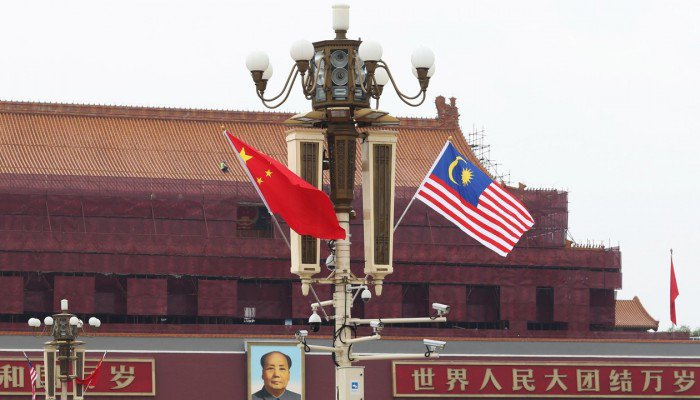
The Chinese and Malaysian flags fly at Tiananmen Square in Beijing (Photo: Reuters)
I’ve been quoted in this piece by in the South China Morning Post, sharing some of my thoughts on Mahathir’s China strategy and the tone of relations between the two Asian nations.
As I mentioned, since the election, Mahathir has been keen to explain that the anti-China election campaign was not actually directed at China, but rather at Najib.
“The idea of resetting the Malaysia-China relationship so it becomes about growth and opportunity – as opposed to debt and corruption which he has associated with Najib – is appealing to voters who feel they’ve been going under, because of the pressure exerted on them by corruption, inadequate social protections, and the cost of living.”
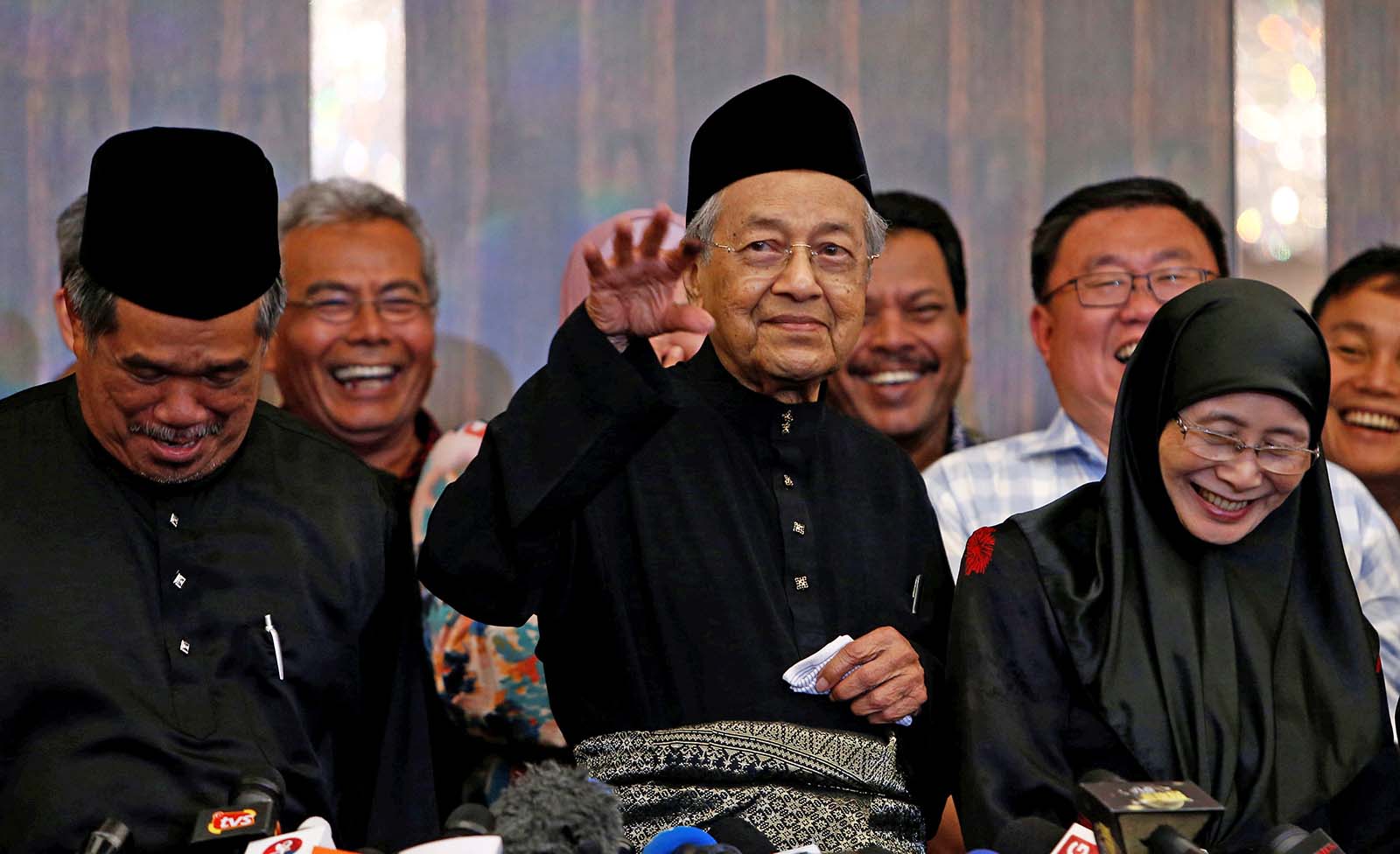
Malaysian Prime Minister Dr Mahathir at a press conference in Kuala Lumpur, May 10, 2018 (Photo: Reuters/Lai Seng Sin)
I’ve been quoted in this excellent article on Malaysia-China relations by Nile Bowie in the Asia Times, with whom I was very happy to share my some of my thoughts:
“Since the election, Mahathir and other government figures have been at pains to explain that the ‘anti-China’ election campaign was in fact directed at Najib, and not China.”
“China and Malaysia have invested in some heavy PR in recent months, promoting the strength and dynamism of their bilateral ties and mobilizing high-profile businessmen like Jack Ma to project the message that the two nations are closer than ever, and can reset their relationship to deliver wide bilateral benefits.”
“Mahathir has been speaking not only to China’s leaders but to his domestic constituency in Malaysia… (the Malaysian premier’s aim) is to demonstrate that he can return Malaysia to a policy of non-alignment and deliver a new era of prosperity, even in a climate shaped by heightened great power competition.”

I took part in a fantastic panel discussion alongside Assistant Professor Noura Erakat and chaired by Peter Mares at the Adelaide Festival of Ideas this morning.
I offered my take on the recent success of Malaysia’s Pakatan Harapan, and its campaign that was able to overcome an electoral system rigged against an opposition win. We discussed whether or not it is truly possible for Malaysia to build a rejuvenated and peaceful multi-racial society and institutions, and what hope there is for political reconciliation for the Palestinians.
The event was presented by the Australian Friends of Palestine Association (AFOPA), the School of Social Sciences at The University of Adelaide and the 2018 Adelaide Festival of Ideas, and you can listen to a recording of it here.
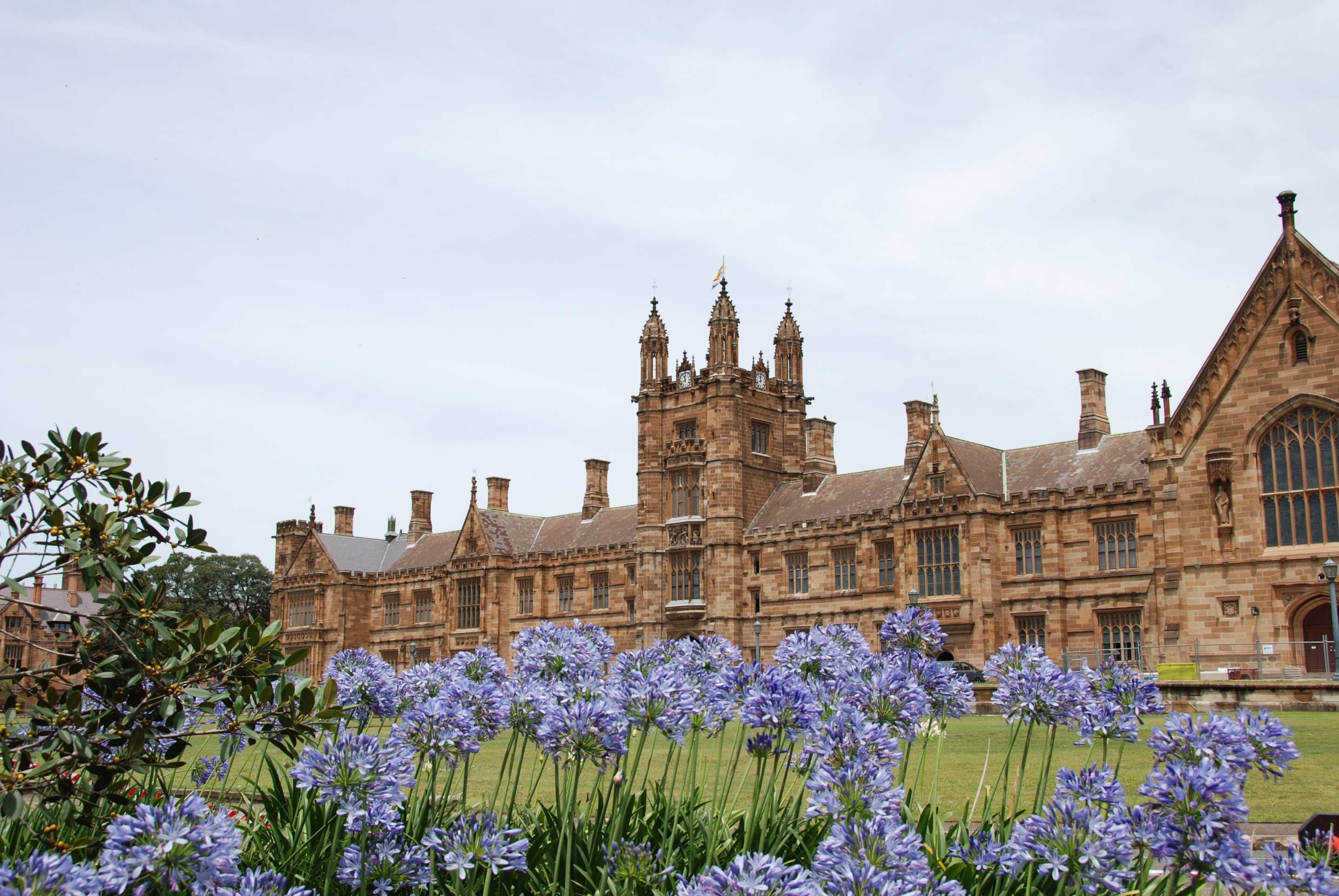
I’ve had the pleasure of both chairing and speaking on a panel at the 2018 Asian Studies Association of Australia (ASAA) biennial conference, which was held 2-5 July at the University of Sydney. My talk was titled Race and the ‘Multi-Racial’: Malaysian Opposition Campaigning, 2008-2018, which I presented alongside some other excellent talks on politics and identity.

Today I spoke alongside Prof James Chin, Director of Asia Institute Tasmania, with ABC Radio National’s Phillip Adams about the changing of the guard in Malaysia, and re-investigation of the 1MDB scandal and likely arrest of former Prime Minister Najib Razak.
You can listen to the broadcast here.
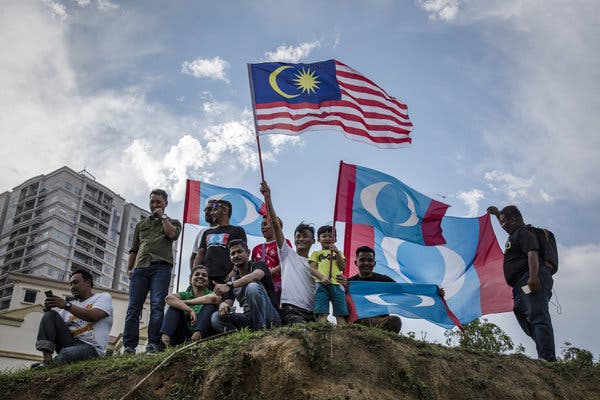
Image: Ulet Ifansasti/Getty Images
I enjoyed being part of this panel hosted by The Lowy Institute’s Director of the Southeast Asia Project, Aaron Connelly, where I was joined by James Chin, Director of the Asia Institute Tasmania, and Kean Wong, contributing editor at New Mandala.
We discussed how the newly elected coalition will address fundamental social issues, such as those of race and ethnicity; the relationship between PM Mahathir and Anwar Ibrahim; the culpability of former PM Najib Razak with regard to the 1MDB scandal; how UMNO will adapt to life as the opposition; and what Malaysia’s change in government means for Australia.
You can also listen to the panel discussion here through The Lowy Institute channel on Soundcloud.